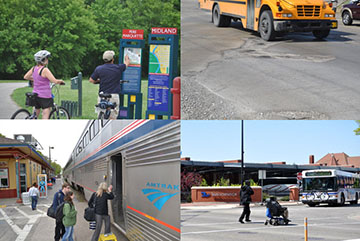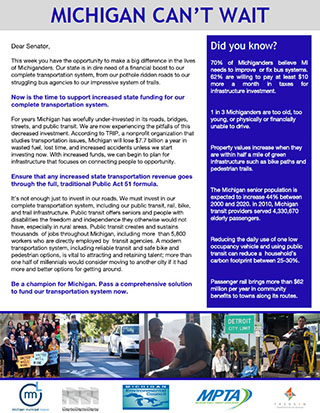This morning the House Energy & Technology Committee heard testimony on House Bill 4237, a bill that would open state police communications towers to colocation for broadband expansion.
As introduced this legislation would allow both public and private entities to colocate for the purpose of broadband expansion; however, a substitute passed by thecommittee would limit this to only private entities for three years and then allow public entities to colocate only in “underserved areas.”
The League is a staunch supporter of broadband expansion; however, banning public entities from this colocation seeks to inhibit broadband expansion to only if a private entity decides to expand. This is a disservice to Michigan residents and job providers as broadband access becomes more necessary for both businesses and residents.
We continue to oppose this version of the legislation and encourage you to contact your House members to do the same.
Samantha Harkins is the Director of State Affairs for the League handling municipal finance issues. She can be reached at sharkins@mml.org or 517-908-0306.



